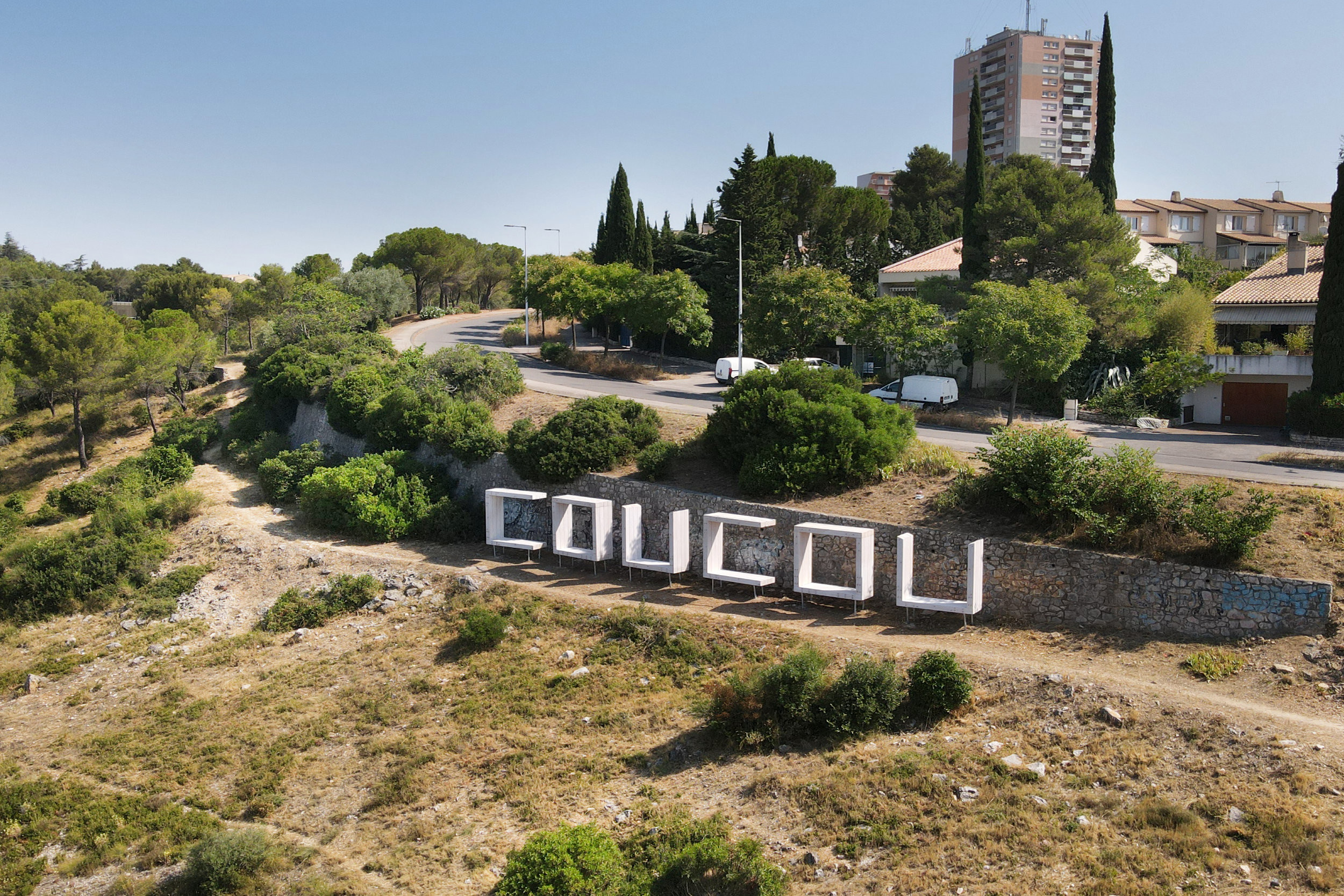
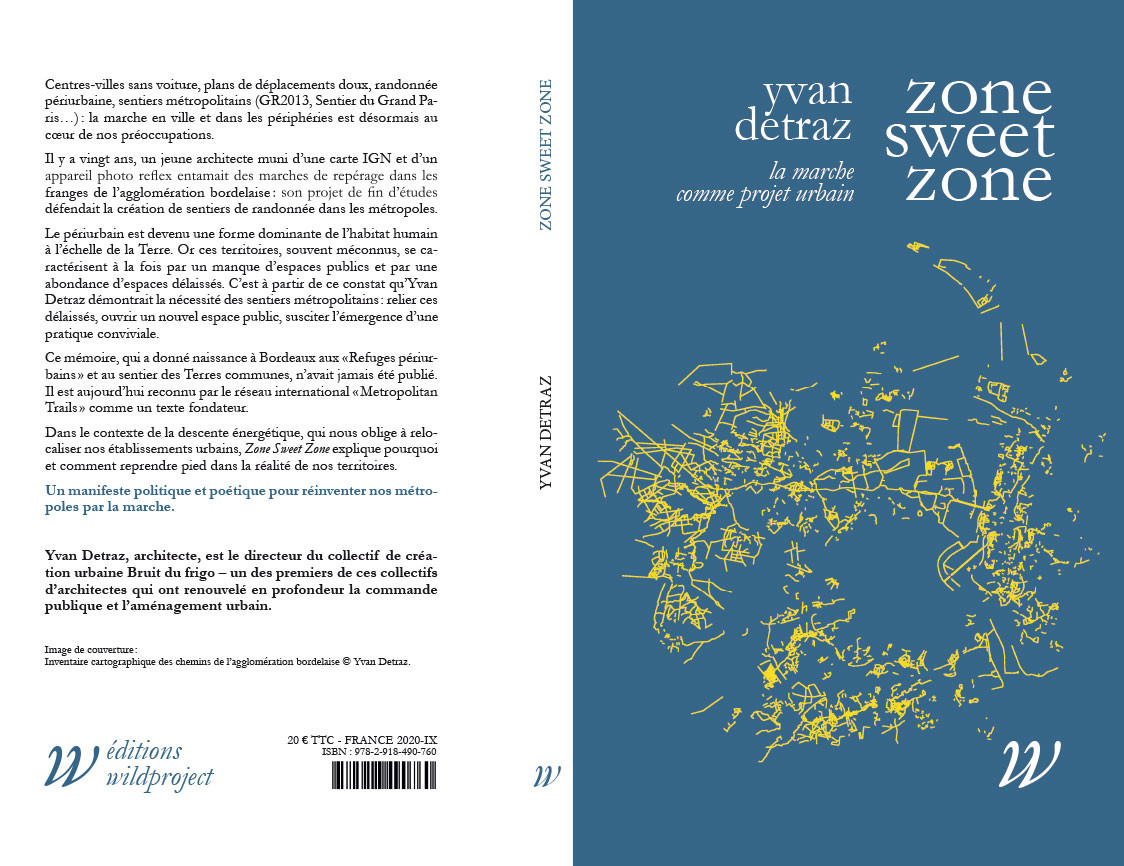
28 Jul 2020
Zone Sweet Zone, walk as urban project
A text by Yvan Detraz - Wildproject Editions
In recent years, the practice of urban and suburban hiking has been booming, particularly with the Metropolitan trails.
In this unpublished text from 1999, written as part of a graduation diploma, the architect Yvan Detraz proposed a manifesto of these emerging practices.
To be published on September 10, 2020
Wildproject Editions – 180 pages – 14 x 22 cm – 20€.
Exclusively available from 11 July 2020 at the Pavillon de l’Arsenal in Paris on the occasion of the exhibition l’exposition L’art des sentiers métropolitains.
A political and poetic manifesto to renew suburban territories
Car-free city centres, gentle travel plans, suburban hiking, metropolitan trails (GR2013, Greater Paris Trail…): walking in the city and its outskirts is now at the heart of our concerns.
Twenty years ago, a young architect equipped with an IGN map and a reflex camera began exploratory walks in the fringes of the Bordeaux urban area: his graduation project defended the creation of hiking trails in the metropolis.
The suburb has become a dominant form of human habitation on an Earth-wide scale. Yet these territories, which are often little known, are characterized both by a lack of public spaces and by an abundance of neglected spaces. It is from this observation that Yvan Detraz demonstrated the need for metropolitan trails: to connect these neglected spaces, to open up a new public space, and to encourage the emergence of a user-friendly practice.
This work, which gave birth in Bordeaux to the “Suburban shelters” and the Common Lands trail, had never been published. It is now recognized by the international network “Metropolitan Trails” as a founding text.
In the context of the energy decrease, which forces us to relocate our urban settlements, Zone Sweet Zone explains why and how to regain a foothold in the reality of our territories.
Text extracted from the publisher’s press kit.
Last
projects
> all projectsAt the crossroads of art, territories and populations, our approach aims to promote the transition to sustainable, shared and welcoming cities, by proposing alternative ways of imagining and building our living environment and by exploring new forms of public space.


The Portable Public Spaces
Lyon
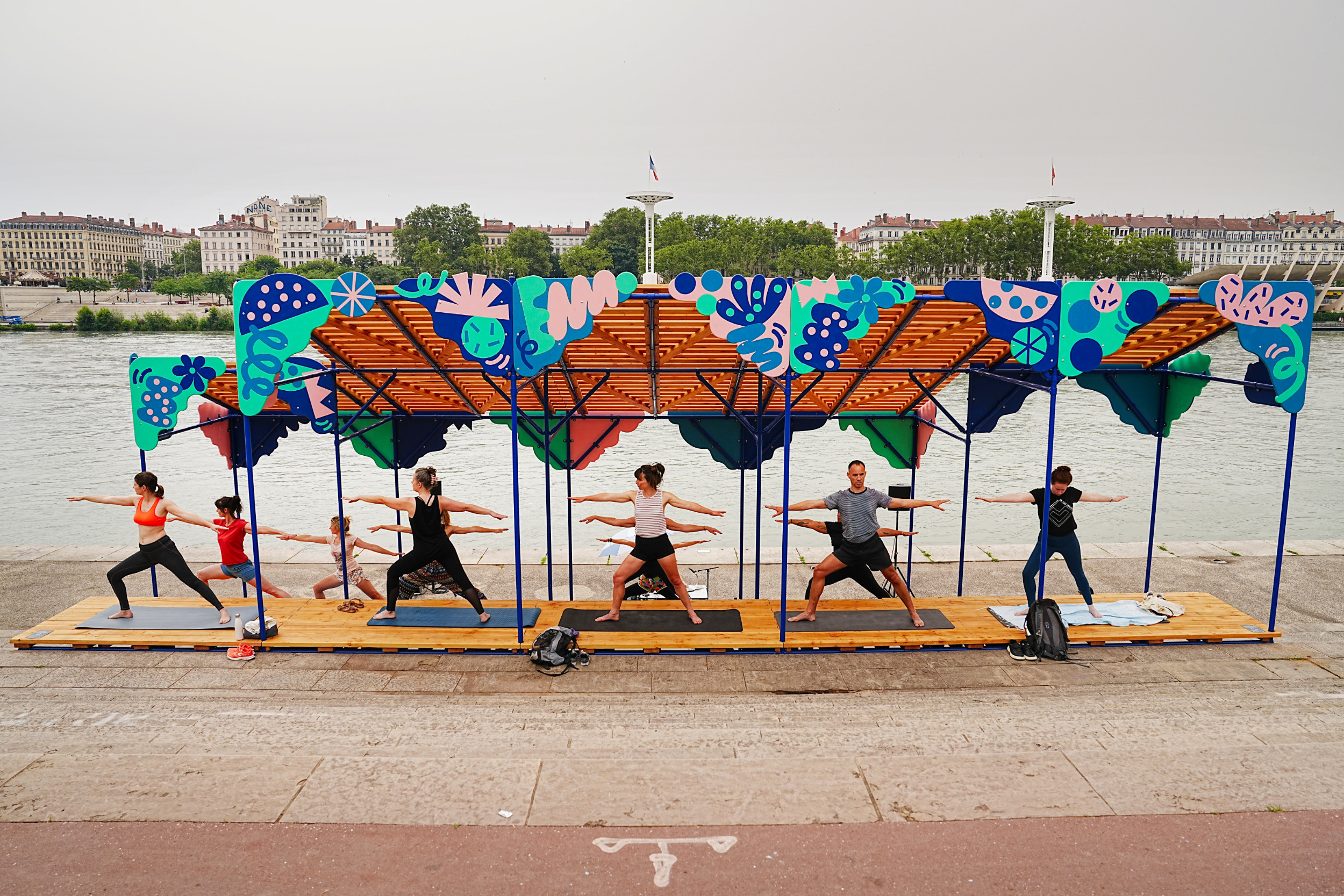
Modular shade canopy
Lyon
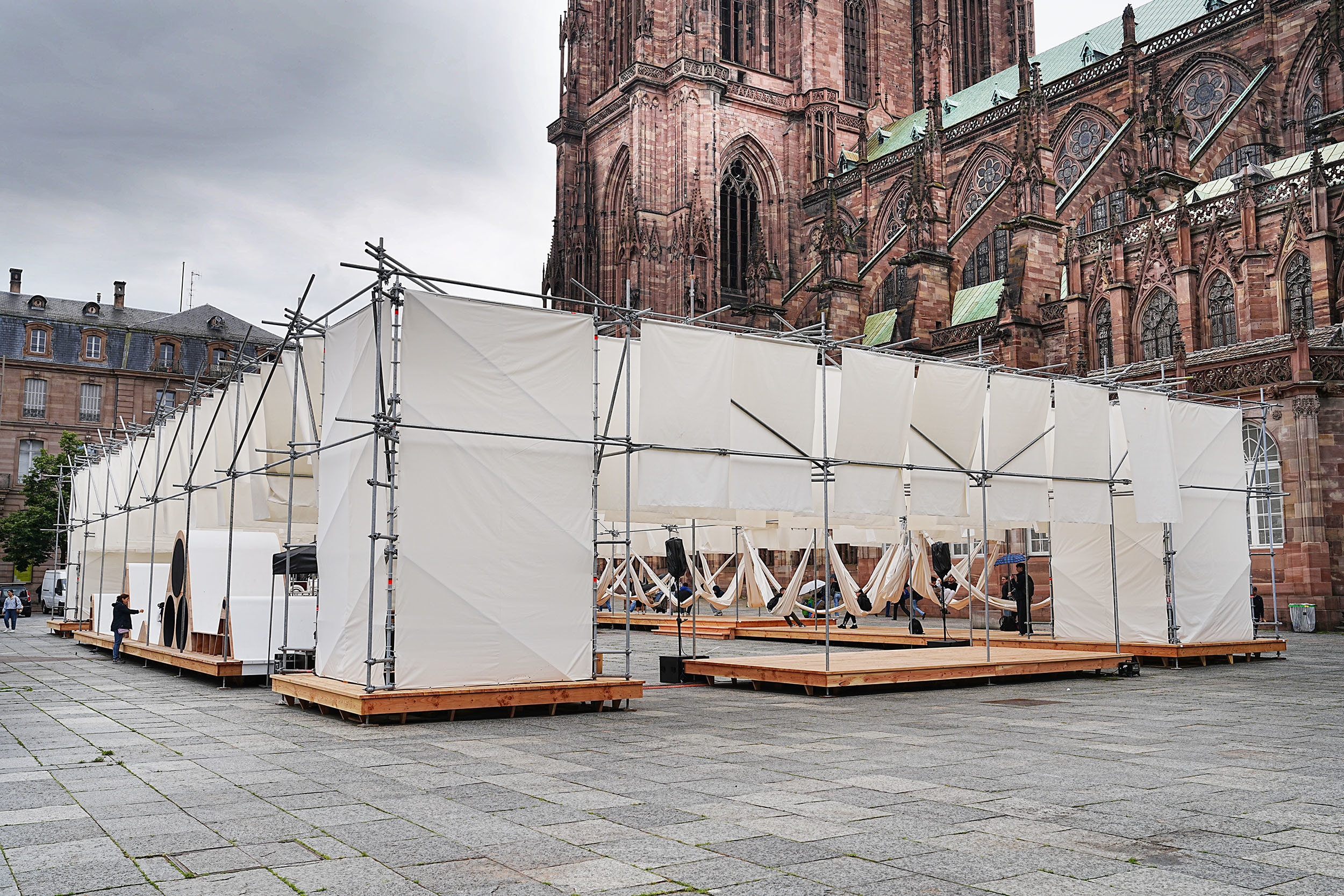
Blank pages
Strasbourg – France

Hooky classes #3: Le toboscope
Bordeaux grow nature Bordeaux
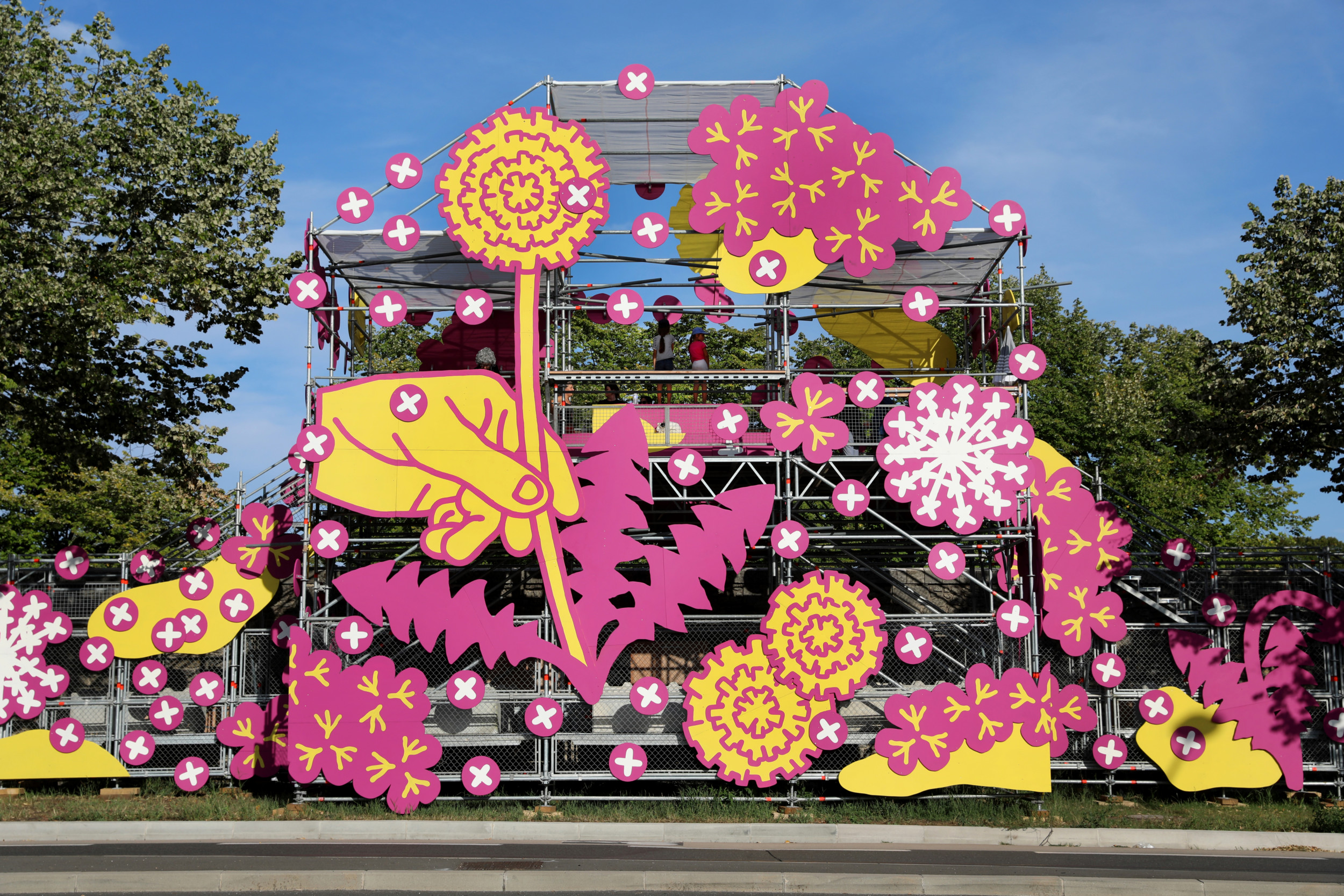
Beyond the boulevards
Bordeaux – France
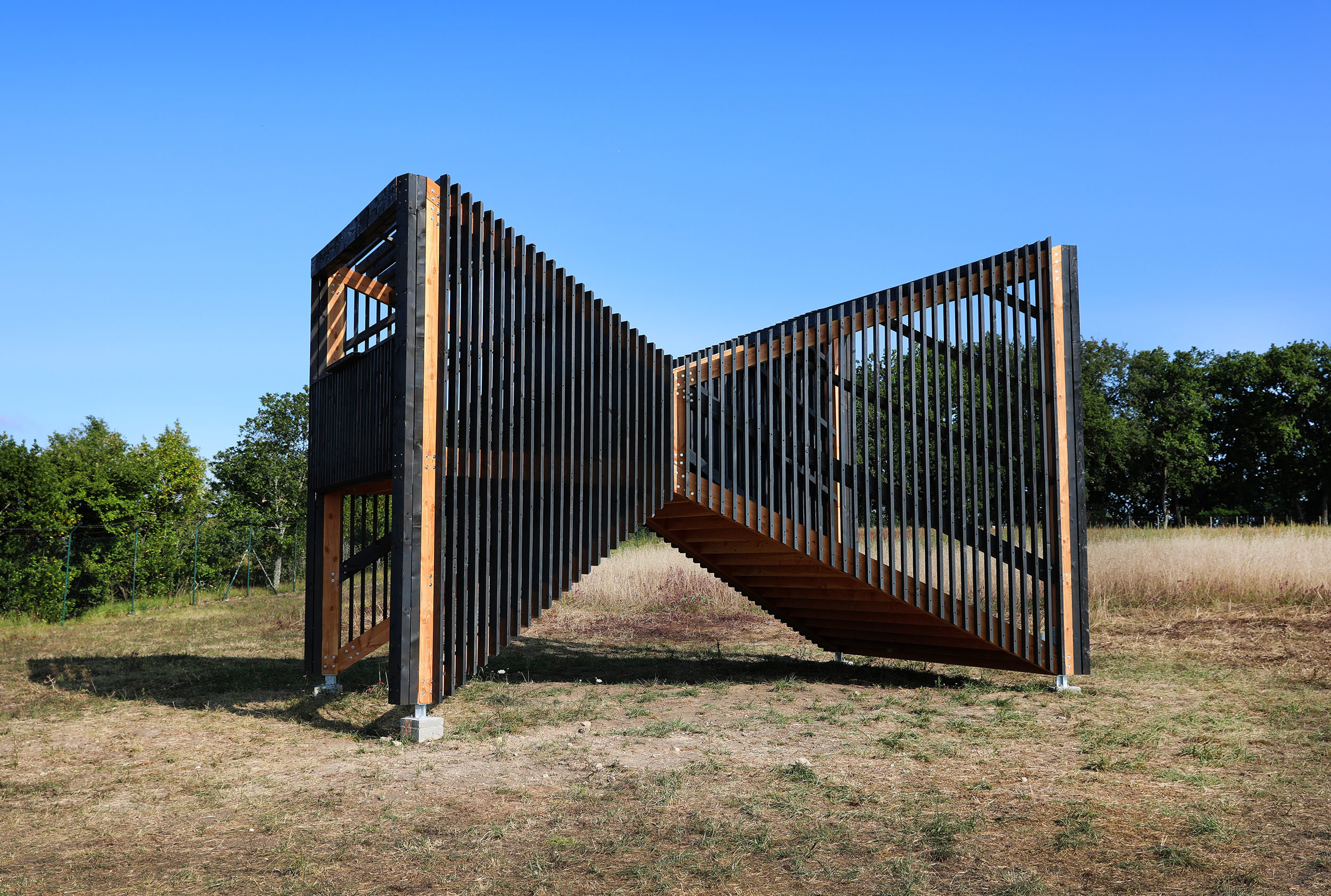
The Koniscope
Cubzac-les-Ponts – France

